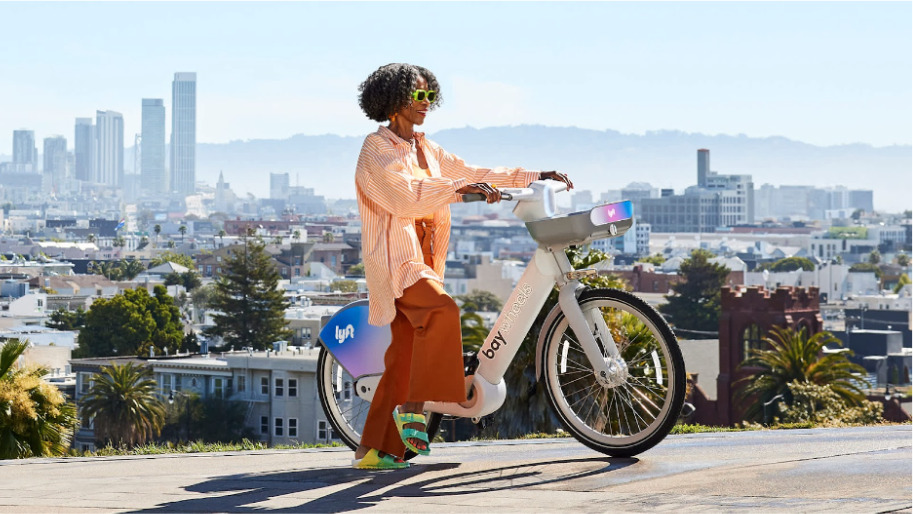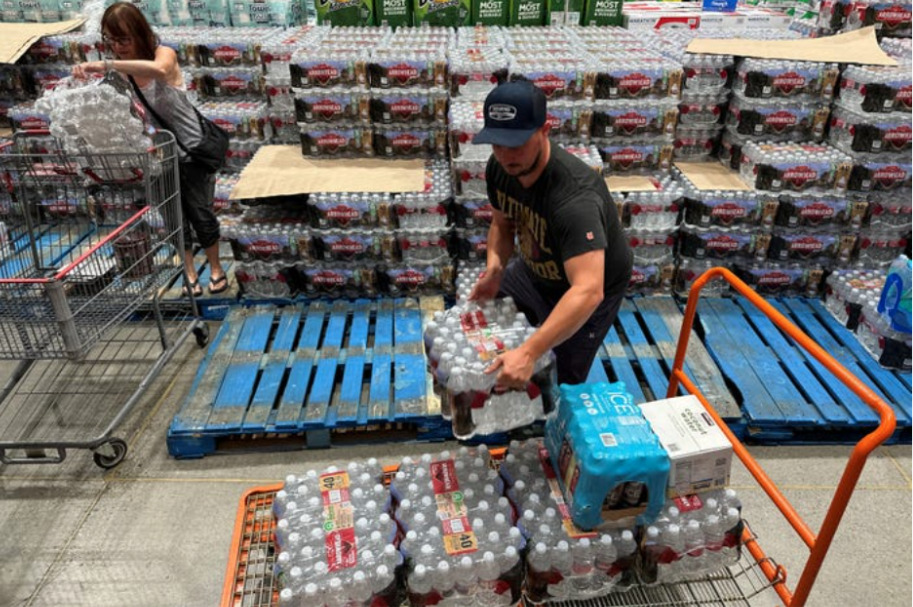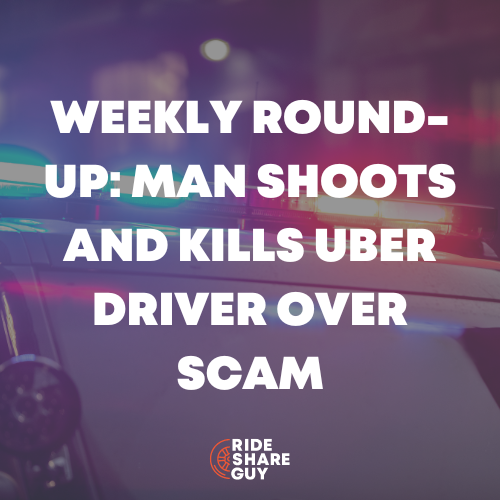The world of rideshare and travel is ever-evolving, including more startups like Daytrip going through rounds of funding.
The bikeshare industry is also evolving, trying to pivot and regain traction after the pandemic derailed several e-bike companies.
This week, read about Tesla’s crossover and New York City drivers’ settlement. Plus, why are grocery deliveries taking too long?
Join RSG Contributor Paula Lemar as she breaks down the top headlines in this week’s rideshare news.
RSG’s Newest Show!
Did you see our Instagram or YouTube post about our newest show that launched this year, Crossfire?! This series is one you don’t want to miss as Sergio debates Harry. It is super fun, exciting, and even a bit combative.
Global Travel Platform Daytrip Closes $10M Series B Round
Topic Originally Appeared On Yahoo! Finance
Summary
Daytrip, a global travel platform providing private door-to-door car transfers in over 110 countries worldwide, announces the closing of a Series B investment led by Taiwania Capital, with participation from existing investors Euroventures, J&T Ventures, and N1.
Daytrip offers private transfers with English-speaking drivers and optional sightseeing stops. The latest funding round will support the company in further building the platform, expanding its operations in new countries, including the United States, and establishing strategic partnerships with key industry leaders.

“We have truly global goals with Daytrip and it is so satisfying to see the brand’s expanding footprint and positive impact as we are now available in more than 110 countries worldwide,” said Tomáš Turek, Co-Founder and CEO of Daytrip.
“Daytrip started with the idea that people want more than a transfer, they want an experience when going places and we are excited that our customers are choosing us for this reason and that our new investor, Taiwania Capital, believes in our product and supports us as we open the platform to millions of travelers around the world.”
My Take
Check out Harry’s interview with Daytrip’s CEO Tomáš Turek.
Personally, I love to travel but don’t do it nearly as often as I want to. But also, I never know what to do once I get there. Having an option like Daytrip would be great to help get me to and from the airport while also teaching me a bit about the area I’m visiting.
It also sounds like a great opportunity for drivers in the area to earn money as a side hustle or as full-time drivers. While it’s mostly international, keep an eye on Daytrip’s expansion capabilities.
Could This Public-Private Partnership Be The Future Of U.S. Bikeshare?
Topic Originally Appeared On Lyft
Summary
Late last year, the regional planning organization responsible for the Bay Area’s transportation, the Metropolitan Transportation Commission (MTC), made an unusual announcement.
Not only would it be expanding the Bay Wheels bikeshare system, adding 55 new stations and over 2,000 new ebikes, but it would be reducing the cost of membership, too, from $169 to $150 per year and 20 to 15 cents per minute for members riding ebikes.

Most of the press coverage focused on the numbers, and for good reason: Bikeshare prices in the past few years have gone up in many U.S. cities, not down.
However, few stories delved into the underlying innovation that made the expansion/price cut possible — and rather unique for the United States.
Unlike in Europe, in the U.S., it is rare — and even anathema — for the public sector to fund the infrastructure and operations of a city’s bikeshare program.
Consider that New York City subsidizes its ferry system, but not its bikeshare — even though the ferry transports a fifth as many people as Citi Bike (Washington, D.C.’s Capital Bikeshare is a notable exception; the city owns and devotes public funds to the system and, as a result, has unusually affordable pricing for members.).
My Take
The e-bike industry took a huge hit with the pandemic when everyone was ordered to shelter in place. Not a lot of money to be made when no one is leaving their homes. Plus, as the article points out, in the U.S., not a lot of cities are bike friendly.
Is a shift to public-private partnerships helping the bikeshare industry get back on its feet? Time will tell.
Why Is Your Grocery Delivery Taking So Long? Your Driver Has 2 Other Deliveries.
Topic Originally Appeared On Business Insider
Summary
Last summer, some gig workers who delivered grocery orders for Walmart noticed a change: Instead of just delivering one order, they had to deliver two or three at once.

“Three grocery orders can also be delivered during each trip by using your front seat, back seat, and trunk space to keep these orders separate,” Walmart told workers for its Spark service at the time in an email.
The advice is now on the company’s website for Spark drivers.
The practice of bundling orders isn’t new. Other apps, including Instacart and DoorDash, have been doing it for years.
My Take
Some drivers love batches, and some hate them. If you can shop multiple orders at once, it cuts down on how long you take overall, but it also depends on how the platform pays for batch orders.
Some don’t give you the full amount you would if you were to have gotten them each individually. Plus, if you take longer than a customer is expecting with an order because you’re working on multiple at a time, you might get less of a tip.
Frustrated customers tend to blame the drivers, whether it’s an issue of out-of-stock items or shopping for multiple orders at once.
If you’re looking for tips on how to get more batches on Instacart, check out Harry’s article: How to Get More Batches on Instacart.
Tesla’s New Compact Crossover Is Reportedly Coming In 2025, But Will It Cost $25,000?
Topic Originally Appeared On The Verge
Summary
Tesla is eying a June 2025 kickoff for production of a new mass-market compact crossover, Reuters reports. The company has apparently invited suppliers to bid to work on the car and is forecasting to produce 10,000 vehicles weekly.
Following the publication of this story, Tesla CEO Elon Musk responded to a question about “next-generation platform vehicles” during an earnings call by saying production would start “towards the end of 2025.”
He also said the first manufacturing location for the company’s next-gen vehicle would be in Austin, Texas.
No specifics on the features or pricing of the vehicles were offered, and Musk warned that his timeline “should be taken with a grain of salt” due to the complexities of developing new manufacturing technologies.
“You have to design a machine that has never existed to build a car in a way that has never existed,” added Musk.
My Take
More options. We need more options and more affordable ones. Hopefully, this is Tesla’s answer to that. It’s still over a year away, but we’re hopeful this is a step in the right direction for a more affordable vehicle.
But, as the article points out, the company has struggled to meet that low of a price point in the past. Hopefully, we’ll see something that is affordable come out of Tesla in 2025.
Uber, Lyft Drivers Will Soon Be Able To Apply For Settlement Funds From Historic Lawsuit
Topic Originally Appeared On CBS News
Summary
Thousands of ride-share drivers in New York City will soon see some money heading their way.
New York Attorney General Letitia James announced Thursday that drivers will soon be able to apply for settlement funds stemming from a historic lawsuit.
In November, Uber and Lyft agreed to a $328 million settlement for not properly paying drivers for years.
My Take
Where there’s a ruling for more pay for drivers, there’s a settlement for back pay. If you’re a driver in NYC, keep us posted on if you were part of the settlement and how much you received.
We’d also love to hear from you after the changes have fully taken effect to let us know if you’re actually earning more, less, or about the same as before the minimum pay.
RSG in the News This Week
Read more trending topics in the news this week:
- Here’s what’s in store for the gig economy in 2024, according to 7 insiders – See Harry’s response as one of the insiders interviewed!
Must Listen Or Watch RSG Content
Here are this week’s featured podcast episode and YouTube videos:
- RSG251: How Vugo is Helping Fleet Owners Earn More With In Car Advertising
- Should Lyft Put Drivers In TIMEOUT For Cancelling Trips?
- Successful Full Time Husband & Wife Driver Team Making It Happen
- Crossfire: Lyft Timeouts, Driver Earnings, Uber’s Take
- Make sure you Subscribe so you don’t miss out on future conversations and interviews!




